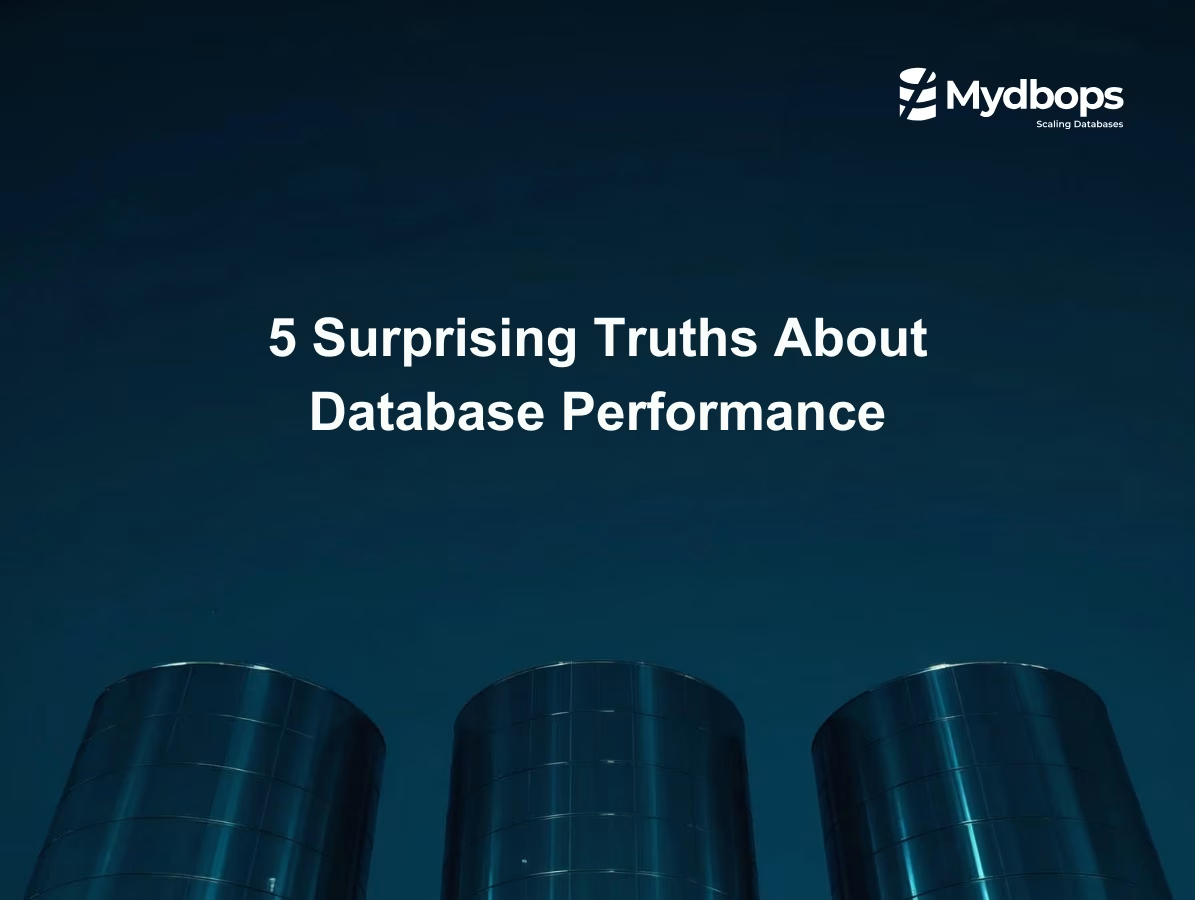

MySQL 8.4 Audit Log Filter
For any organization serious about security and compliance, a robust audit trail isn't a "nice-to-have"—it's a necessity. But for years, the open-source options in MySQL were clunky and inflexible.
That all changes with MySQL 8.4.
In our 45th MyWebinar session, I had the pleasure of hosting Mydbops Founding Partner, Vinoth Kanna RS, for a deep dive into the new Audit Log Filter. He broke down exactly why this feature is a game-changer for database security.
If you missed the live session, we've got you covered. Here are the essential highlights, and you can access the full recording and slides below.
Access the Full Resources
Watch the Full Webinar Recording
Download the Presentation Slides
The Big Problem: Why Old Audit Methods Weren't Enough
Vinoth started by setting the stage, explaining the drawbacks of older audit plugins. For years, DBAs had to deal with a "one-size-fits-all" approach. This meant:
- Restarting the server just to change a configuration.
- Limited filtering, which created a lot of unnecessary log data and huge files.
- A major performance slowdown in high-traffic environments.

The Game-Changer: What Makes the New Audit Log Filter So Powerful?
The biggest takeaway from the session was understanding the fundamental change in MySQL 8.4. The old, clunky Plugin is gone, replaced by a modern, built-in Component.
This isn't just a name change; it's a completely new design that allows for on-the-fly changes, better performance, and powerful, enterprise-level features for everyone.

Precise Control with JSON-Based Rules
One of the most exciting moments was when Vinoth showcased the new JSON-based rule system. Instead of a single, rigid rule, you can now create multiple, very specific filters and assign them to different users.
He walked through several powerful examples, including:
- Logging Only Failed Logins: A huge win for security teams who want to monitor threats without digging through thousands of successful connection logs.
- "Ignore" Filtering: The ability to log everything except noisy, routine SELECT statements—drastically reducing log file size.
- Category-Based Logging: Easily track all schema changes (like CREATE TABLE) across the entire server with a simple rule.

Making Auditing Safe for Production
For years, many DBAs were afraid to enable full auditing in production because of the performance hit. Vinoth explained how MySQL 8.4 solves this with features designed for real-world use.
He covered the three logging strategies—Asynchronous, Performance, and Synchronous—and explained that the PERFORMANCE mode offers a great balance, ensuring your application never slows down even if logs are being written heavily.
He also highlighted the new, built-in support for log file encryption (AES) and compression (GZIP), which are critical for security and saving disk space.
The Final Takeaway: Why This Matters for Your Business
As Vinoth concluded, this new auditing system is a critical tool for any organization that is serious about database security and compliance. The ability to create specific, flexible, and high-performance audit policies is no longer a feature reserved for expensive enterprise editions.
This change makes top-tier security accessible to everyone in the MySQL community, helping you protect your most valuable asset: your data.

Ready to Modernize Your MySQL Security?
Implementing a strong auditing strategy is a critical step, but it's just one piece of a complete database management plan. From performance tuning and high-availability setups to 24/7 monitoring and expert support, Mydbops offers complete MySQL services for your most important MySQL databases.
Let our certified MySQL experts help you build a secure, compliant, and high-performance database environment.



.avif)

.avif)

.avif)

.avif)




.svg)
